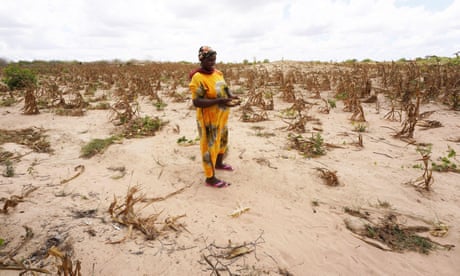The energy crisis and load shedding was the defining anthem for the past 30 years of South African democracy. On April 27, South Africa celebrates 30 years since the first democratic elections took place. The public mood is highly charged with disappointments over the governments failures to set the economy on the road to success.
Huge socio-economic problems exist and are getting deeper in South Africa mainly due to non-investment amid the ongoing power crisis
In the past five years Eskoms energy crisis has crippled industry and acted as a wrecking ball to economic growth, which has led to the country onboarding massive fiscal debt to keep its house functioning. Household wealth has dwindled and the poor poorer.
As a result, South Africans have turned their democratic disappointment into rage and distrust towards the government and the ruling party.
Infrastructure breakdowns, cable theft and collapsed electricity distribution due to the non-maintenance of infrastructure are still the order of the day despite the governments talk of fixing the problems.
This has left many communities and townships in the dark for weeks on end. Service delivery protests have become the order of the day. But South Africans frustrations are boiling over.
The 2021July riots, mainly in KwaZulu-Natal, showed how desperate people were to do anything to attain a better life. After enduring harsh living conditions and experiencing poverty for many years, people took to the streets.
What started off as a peaceful protest turned into mass looting amid destruction and damage of private and public property. Hundreds of people lost their lives in the process. People just had enough.
South Africa unfortunately suffers all the symptoms of a failed state as it faces the triple challenges of poverty, unemployment and joblessness.
The middle class and ultra-rich in our society meted out all sorts of criticism over the July unrest, but what most failed to take note of is that the poor are getting desperate as living conditions deteriorate, making it harder for people to even buy food amid a cost of living crisis.
This as South Africas rate of unemployment is the highest in the world. Why? Because over the past 30 years South Africa has been shutting down its economy and phasing out all forms of industrialisation.
Eskom made matters worse when it took drastic steps during the early years of load shedding to pay off industries to shut down their manufacturing plants, or curtail electricity usage, in order to lessen the industrial electricity demand. Soon after the 2007 economic collapse, Eskom started the process of paying off Intensive Energy User Group industries who are its industrial customers, paying them a hefty premium not to use electricity, in the process reducing the demand for electricity.
This strategy led to closures and migration of many industrial customers. Many industrial customers left South Africa and went to Asia and the Middle East as they couldnt afford to operate in an environment that could not guarantee their electricity supply. Some just simply closed down due to affordability of electricity.
One customer, operating a foundry, told me that the cost of electricity accounted for more than 45% of their total production costs. How do you sustain a business and operate in such an environment?
The government uses the lame excuse of blaming apartheid for its failures. But you only need to look at Eskoms electricity data for the past 30 years to know this is an excuse.
A stable electricity supply equals economic growth. You then realise that we truly are in an environment where in the land of the blind and the one-eyed man is king. South Africa has systematically over the past 30 years orchestrated its own economic decline and collapse.
This shows that no economy and society can operate successfully without building an industrial economic base and providing an adequate power supply to grow the economy, provide jobs and create thriving socio-economic conditions for the common person in the street to prosper.
Over the past 30 years Eskom and the government have repeatedly been warned that the current power system would not suffice and that the state needed to build new power stations to add additional megawatts to the grid.
Right now the current system is stretched to its maximum capacity. And the only relevant baseload generation capacity is now coming from the newly built Medupi and Kusile power stations and open cycle gas turbines (OCGTs). Meanwhile the old power plants were poorly maintained and neglected to levels where even philosophy maintenance processes were abandoned altogether, made worse during the past five years.
The Department of Public Enterprises last week revealed in Parliament that Eskom had spent R65 billion in diesel to power OCGTs to generate power amid plant breakdowns.
This as t










